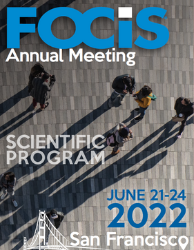IL-33 and IL-4 Synergize to Dysregulate TREG Cell Function and Promote Type 2 Responses in RSV-induced Asthma
.jpg)
Fernando Alvarez, PhD
post-doctoral fellow
McGill University
Montreal, Quebec, Canada
Irini Sereti, MD
Senior Investigator- Section Chief
National Institute of Allergy and Infectious Diseases
Bethesda, Maryland, United States
Presenting Author(s)
Chair(s)
Respiratory syncytial virus (RSV) is a major cause of hospitalization in infants and is associated with asthma development. While the way neonatal infections induce long-term immune alterations remain ill-defined, there is evidence regulatory T (TREG) cells fail in preventing pulmonary TH2 responses. Since IL-33 is an alarmin involved in the exacerbation of TH2 responses, we hypothesized that neonatal RSV infections impair the long-term suppressive function of IL-33-responding (ST2+) TREG while contributing to TH2-induced pathology.
Using an RSV A2 murine model of infection, we uncovered that, contrary to conventional TH2 cells, ST2+ TREG fail to accumulate in the lungs at the time of neonate infection but expand robustly and express GATA3 and IL-13 upon re-infection in adult BALB/c mice. Through a Foxp3-specific ST2 conditional knock-out mouse sensitized to house dust mite, we observed that ST2+ TREG are required for controlling exacerbated TH2 cell responses in mice naturally resistant to type 2 immunity. Indeed, while IL-33 potentiated the expression of the IL4Rα, IL-4, in turn, drove the production of IL-10 by TREG. However, increasing amounts of IL-4 also contributed to dysregulate the suppressive capacity of TREG cells in vitro and drive a TH2-like conversion of TREG (IL-13+, IL-5+, GATA3+) in a STAT6-dependent manner, suggesting that tight control of IL-4 signaling is required for ST2+ TREG to suppress T cells.
These initial studies suggest RSV induced IL-33 sensitizes local TREG to TH2 produced IL-4 that ultimately dysregulate their suppressive capacity. This work provides a novel target for the development of asthma therapies.

